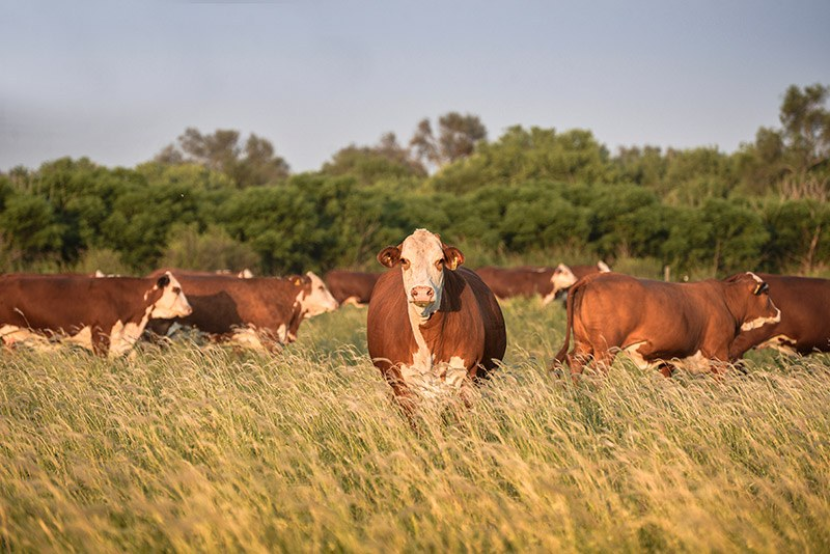
SUMMARY
The number of people facing acute food insecurity in 2020 could reach 265 million due to the impacts of COVID-19, almost double the number of people from 2019, according to the World Food Programme. Professor Mark Eisler (University of Bristol) anticipates the effects will be felt most strongly in the global South: “We are likely to see changes in farming systems resulting from this,” he argues, “and while the impacts of the coronavirus crisis are yet to be fully known, there are huge stresses on these systems already appearing.” This story explores how climate-conscious farming could help develop more resilient systems with research from the Global Farm Platform.
STORY
A consortium of six WUN universities and ten other academic and agricultural partners, the Global Farm Platform (GFP) addresses the need for farming practices that are sustainable for individuals, communities, and the planet. With the livestock sector representing an estimated 11-14% of human-induced greenhouse gas emissions, the collaboration develops best-practice farming that takes account of planetary boundaries. A co-authored article in Nature by Professor Mark Eisler (University of Bristol) and colleagues outlined a vision for ruminant livestock farming that would “cut the environmental and economic costs of keeping these animals while boosting net gains for the quantity and quality of the food they produce” (Eisler, Lee, et al 2014).
The COVID-19 crisis has underscored the fragility of intensive farming practices reliant on transnational supply chains. Livelihoods have been disrupted and hunger is increasing in countries with little to no social safety-net. The Food and Agriculture Organization (FAO) has called for economic stimulus to keep food supply chains functioning.
According to Eisler, however, as systems are rebuilt “there is considerable opportunity for reversing negative trends, with significant potential benefits in terms of the broader environmental costs of livestock-keeping, the so-called ‘externalities” as economists call them.” GFP collaborations have helped to refine methodologies for assessing costs like emissions, pollution, and loss of biodiversity of different farming models (Balmford et al 2018; Takahashi, McAuliffe and Lee 2019), potentially helping to develop more climate-healthy approaches in the wake of COVID-19.
One weakness illustrated by the coronavirus crisis is the use of human-edible food to feed ruminant animals. Supply of human-edible food to intensive livestock producers has been severely affected by COVID-19 containment measures, according to an FAO briefing. This practice is predominantly associated with decoupled agriculture, where the loop between livestock and crop that makes small farms efficient (using crop by-products to feed animals and manure to fertilise fields) has been broken. GFP research has demonstrated the sustainability problems associated with this practice and called for the reliance to be drastically reduced (Wilkinson and Lee 2018).
When the GFP launched there were three participating model farms. In 2020, there are fifteen. “These places have very different environments, climates and biomes,” Eisler explained, from savannahs and natural grasslands, to forests and rainforests; from cool temperate areas to semi-arid areas where livestock may be the only viable option for food production. The sites also reflect different cultural norms, “the way that farming is conducted differs across the world because of the nature of society, the breeds of livestock available, the economic circumstances of the countries.” The GFP has evolved organically in response to the varying interests of farms and scientists, but all participants commit to innovating research and practice to develop ‘transformational solutions’ that take account of local particularities as well as global concerns.
The Worldwide Universities Network supported the Global Farm Platform early on and has contributed funding as the project has grown and diversified. The latest project on smallholder dairy cooperatives in ODA countries, focusing on sub-Saharan Africa, reflects discussions in the WUN Global Africa Group on the need for localised approaches cognisant of the severe climate change impacts for African countries.
If phase one was building knowledge, Eisler summarised, phase two will be harnessing that knowledge: “the challenge we have is trying to find the optimal balance globally, in wealthier countries avoiding over-consumption of livestock products and over-reliance on livestock that are produced in decoupled intensive systems, and returning where appropriate to more environmentally sensitive crop-livestock systems that can both reduce adverse impacts on climate and biodiversity and indeed mitigate climate change impacts on livelihoods, especially in less wealthy countries.”
Professor Mark Eisler is a Principal Investigator of the Global Farm Platforms project. Its WUN partner institutions are University of Alberta, University of Bristol, University of Leeds, The University of Sydney, The University of Western Australia, and Zhejiang University. For more information see their WUN page or the GFP site.